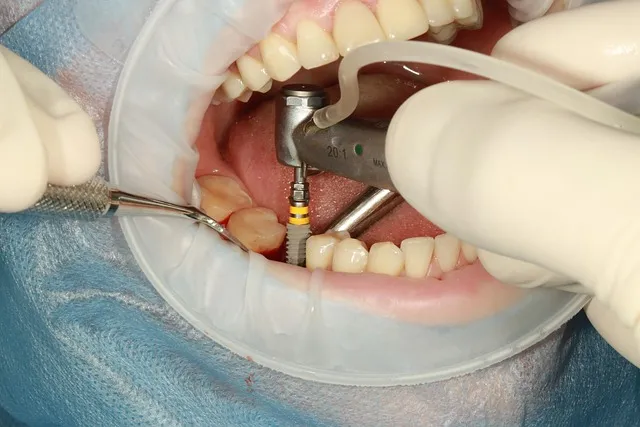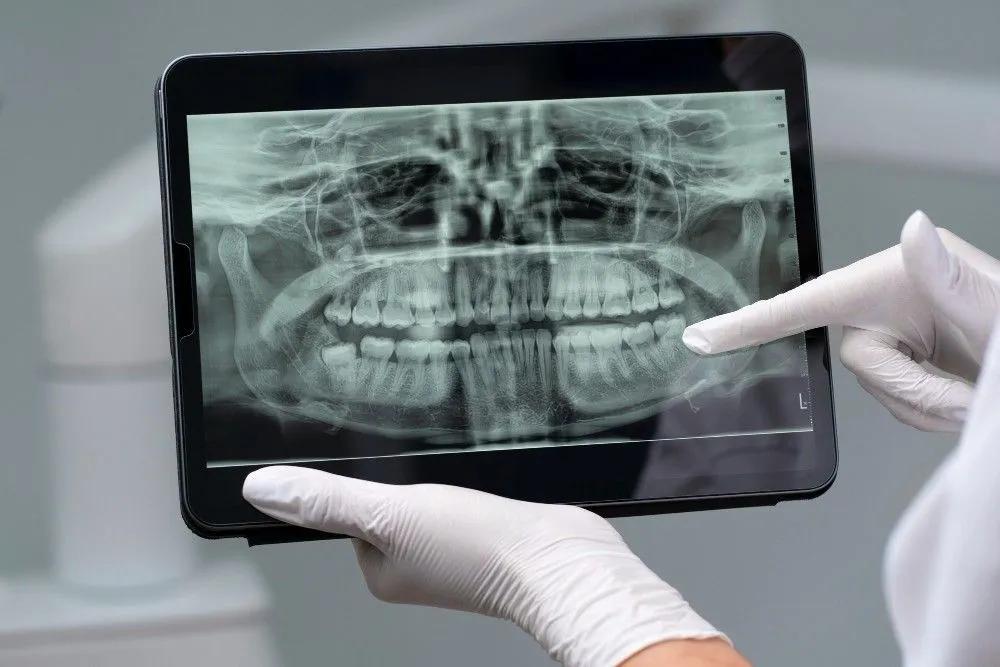Gum disease (also called periodontal disease) is a common oral health condition affecting millions of people worldwide. It causes inflammation or infection of the gums and tissues that support the teeth. It starts as mild gum inflammation but, if left untreated, can lead to severe infections that may impact not just your teeth but your overall health. In case of early detection, this condition can be manageable, while in an advanced stage, it can become severe. This might make you wonder, "Can gum disease kill you?" This article will help you answer your concerns.
In this article, we’ll explore how gum disease affects your body, the hidden risks it poses to your overall health, and effective ways to prevent and treat it. Let’s dive in.
Can Gum Disease Kill You? Understanding the Risks
While gum disease alone won’t directly cause death, it can contribute to serious systemic diseases by allowing harmful bacteria to enter your bloodstream. This can trigger inflammation in other parts of the body, increasing the risk of conditions like:
1. Heart Disease & Stroke
According to a study, gum disease can lead to plaque buildup in the arteries, increasing the risk of Heart attacks, Strokes, and Peripheral artery disease.
Why does this happen? Inflammation from gum infections can make artery walls sticky, allowing cholesterol and fat deposits to accumulate, leading to blockages in the heart and brain.
2. Diabetes Complications
Research reports that gum disease can raise the risk of poor control of blood sugar levels and complications like diabetic neuropathy and retinopathy.
Why does this happen? The inflammation in the body due to inflamed gums can lead to higher levels of blood sugar, making it more challenging to control insulin and diabetes.
3. Respiratory Infections
Gum disease can cause respiratory infections such as chronic obstructive pulmonary disease (COPD) or pneumonia, especially in people with weak immune systems or who are already living with illnesses.
Why does this happen? This occurs due to the release of gum disease-causing bacteria into the bloodstream which are then sucked into the lungs.
4. Pregnancy Complications
Severe untreated periodontal diseases are also linked to pregnancy-related complications such as low birth weight newborns and preterm births.
Why does this happen? The inflammation triggered by gum disease may lead to the release of some chemicals that may affect the developing fetus or induce early labor.
5. Kidney Disease
Chronic gum disease can increase the risk of kidney disease due to the persistent inflammation caused by inflamed gums.
Why does this happen? Gum disease bacteria can harm blood vessels in the kidneys, reducing their ability to filter toxins.
6. Alzheimer’s Disease & Dementia
In some cases of chronic periodontitis, people are 70 percent highly prone to developing Alzheimer’s disease.
Why does this happen? Gum disease-causing bacteria like Porphyromonas gingivalis can travel to the brain via the bloodstream, destroying nerve cells and triggering inflammation that worsens dementia.
7. Increased Cancer Risk
The occurrence of gum disease can also contribute to esophageal cancer, gastric (stomach) cancer, or even lung cancer.
Why does this happen? Chronic inflammation due to gum disease may slowly lead to inflammation in the entire body which can impact the ability of the body to manage or disrupt the growth of cancer cells.
Signs of Gum Disease You Should Not Never Ignore
Recognizing the symptoms of gum disease or periodontal disease early can help with timely management of the condition. Watch for these symptoms:
-
Reddish or purplish gums
-
Bleeding and soreness
-
Persistent bad breath
-
Unpleasant taste
-
Pain while chewing
-
Gum recession (gums pulling away from the teeth)
-
Loose teeth
-
Changes in bite alignment
Gum Disease Stages: How It Progresses
Gum disease occurs gradually; and in stages. Knowing the warning signs of each stage and its impact on dental health can help prevent it before it becomes fatal:
Stage 1: Gingivitis (Early Stage)
The earliest stage, gingivitis is marked by gum inflammation. With professional treatment and proper oral hygiene, it can be reversed.
Symptoms include:
-
Red or swollen gums.
-
Gum bleeding when brushing or flossing.
Stage 2: Periodontitis (Moderate Stage)
If left untreated, gingivitis can progress to periodontitis, an advanced stage that is irreversible and damages tissues and bones supporting teeth.
Symptoms include:
-
Receding gums
-
Persistent bad breath
-
Loose teeth
Stage 3: Advanced Periodontitis (Severe Stage)
The final stage where gum infection becomes severe and causes huge damage to bones and gums, making teeth loose or fall out. This stage requires more comprehensive treatment like tooth extraction or surgery.
You will experience:
- Severe gum infection
- Bone and tissue destruction
- Teeth may fall out
What Causes Gum Disease?
Several factors contribute to gum disease:
-
Poor oral hygiene: Improper and inconsistent brushing and also flossing can lead to hardening of the plaque into tartar.
-
Smoking & Tobacco Use: Slows healing and increases infection risk.
-
Genetics: Gum disease running in the family can make people prone to developing it.
-
Poor nutrition: A diet lacking vital nutrients, especially vitamin C, can contribute to the weakening of the gums.
-
Certain medications: Certain medicines can lower saliva flow, which, in turn, makes gums more vulnerable to infection risk.
-
Hormonal changes: Pregnancy or menopause can lead to hormonal fluctuations, making gums much more sensitive to infection.
-
Diabetes & Other Health Conditions: Viral infections, diabetes, and conditions impacting immunity can raise the risk of gum disease. Weakened immune function due to diseases increases susceptibility to gum disease.
-
Age: With aging, gum diseases become extremely common.
Is Gum Disease Contagious?
Yes, gum disease or periodontal disease is considered contagious, passing from one individual to another. The gum disease-causing bacteria can transfer to others via saliva through close contact such as sharing utensils or kissing, increasing the risk of gum disease. However, casual contact won’t spread the disease.
When To See a Dentist?
If you experience any of these tissues, see a dentist immediately:
-
throbbing pain in the affected tooth
-
Red, swollen, and bleeding gums
-
Persistent bad taste or bad breath
-
Tooth discoloration
-
Extreme tooth sensitivity
How is Gum Disease Treated?
Doctors can help diagnose the specific stage of gum disease and provide the treatment accordingly.
1. Non-Surgical Treatments
These treatments are recommended for the early stage of gum disease- gingivitis.
-
Routine Dental Cleaning: Done twice a year to get rid of tartar and plaque from the tooth surface which reduces the risk of infection.
-
Scaling and Root Planing: Helps with a deep cleaning to get rid of plaque and tartar from the gumline. During scaling, the dental professionals clean the accumulated plaque and root planning helps smoothen out the root surface. This prevents the bacteria from reattaching.
-
Medications: Dentists may prescribe antibiotics like minocycline or chlorhexidine or antimicrobial mouth gels or rinses to fight off bacterial infections.
-
Laser Therapy: This non-invasive procedure involves the use of tiny lasers that help remove affected tissue and kill bacteria present under the gums.
2. Surgical Treatments
These surgical procedures are recommended for moderate to advanced gum diseases:
-
Flap surgery: Helps remove tartar and plaque from root surfaces. Making incisions (cuts) in the gum line, the dentists temporarily move the gums from the teeth to check the roots underneath and then remove the tartar buildup and clean the root surfaces. Once done, they replace the gums and attach them using suture.
-
Bone grafting: This procedure uses synthetic bone, your own bone, or donated bone to repair damaged bone. A graft is inserted until the body regenerates new bone. This procedure is often combined with flap surgery.
-
Gum grafting: This involves the use of your own tissue, synthetic tissue, or donated tissue to place it in the affected area and stitch it into one place. This helps treat gum recession.
-
Guided tissue regeneration: The procedure involves placing a membrane in the affected area to prevent the growth of gum tissues in the areas where bone must grow. This allows the body to regenerate bone around the tooth.
3. Advanced Solutions
In case of tooth loss caused by gum disease, professionals suggest- dental implants as a permanent solution. Dental implants can restore function and prevent jawbone deterioration.
How to Prevent Gum Disease
As you know prevention is the best cure! Consider these practical tips to prevent gum disease and promote your overall oral health:
-
Maintain good dental hygiene: Brush twice a day using fluoride toothpaste as it helps prevent bacteria and cavities and strengthen tooth enamel. Also, floss to remove stuck food particles and plaque between teeth.
-
Use quality mouthwashes: Try fluoride or antimicrobial mouthwashes to prevent bacterial growth and freshen your breath.
-
Avoid smoking: Avoid smoking or any tobacco products to reduce the chances of developing the infection and slowing healing.
-
Consume a healthy diet: Add foods rich in vitamins and minerals, particularly those containing calcium and vitamin C to your diet, to support your dental health.
-
Stay hydrated: Drink a lot of water to regulate saliva flow and protect your gums.
-
Manage chronic health issues: Control your chronic health conditions such as diabetes as it can raise the risk of gum disease due to increased inflammation.
-
Attend dental checkups: Visit your dentist for regular dental cleaning and dental checkups every 6 to 12 months.
Final Thoughts
So, can gum disease kill you? No, gum disease can't kill you alone directly. However, if left untreated, it can contribute to life-threatening conditions like heart disease, stroke, and respiratory infections which may cause death. Your oral health is deeply connected to your overall well-being, making it crucial to take gum disease seriously. Regular dental checkups, good oral hygiene, and early intervention can save more than just your smile—they can save your life. Don’t wait for the warning signs to escalate—your health is worth the effort.
If you experience any signs & symptoms of gum disease, immediately see a dentist to prevent long-term damage to your dental and overall health.
Frequently Asked Questions
How long can you live with gum disease?
Gum disease can last for years and cause damage slowly if left untreated. However, early diagnosis and treatment can prevent severe complications.
Can gum disease be curable?
Early stage- Gingivitis can be curable with effective treatment. However, advanced stages can't be completely reversed but can be prevented from progression.
Can gum disease cause tooth loss?
Yes, an advanced stage of gum disease can lead to tooth loss which may require restorative treatments like dental implants.
Can salt water remove gum disease?
No, it can't cure but helps ease symptoms by reducing inflammation, bacterial growth, and bad breath.
Reviewed by







